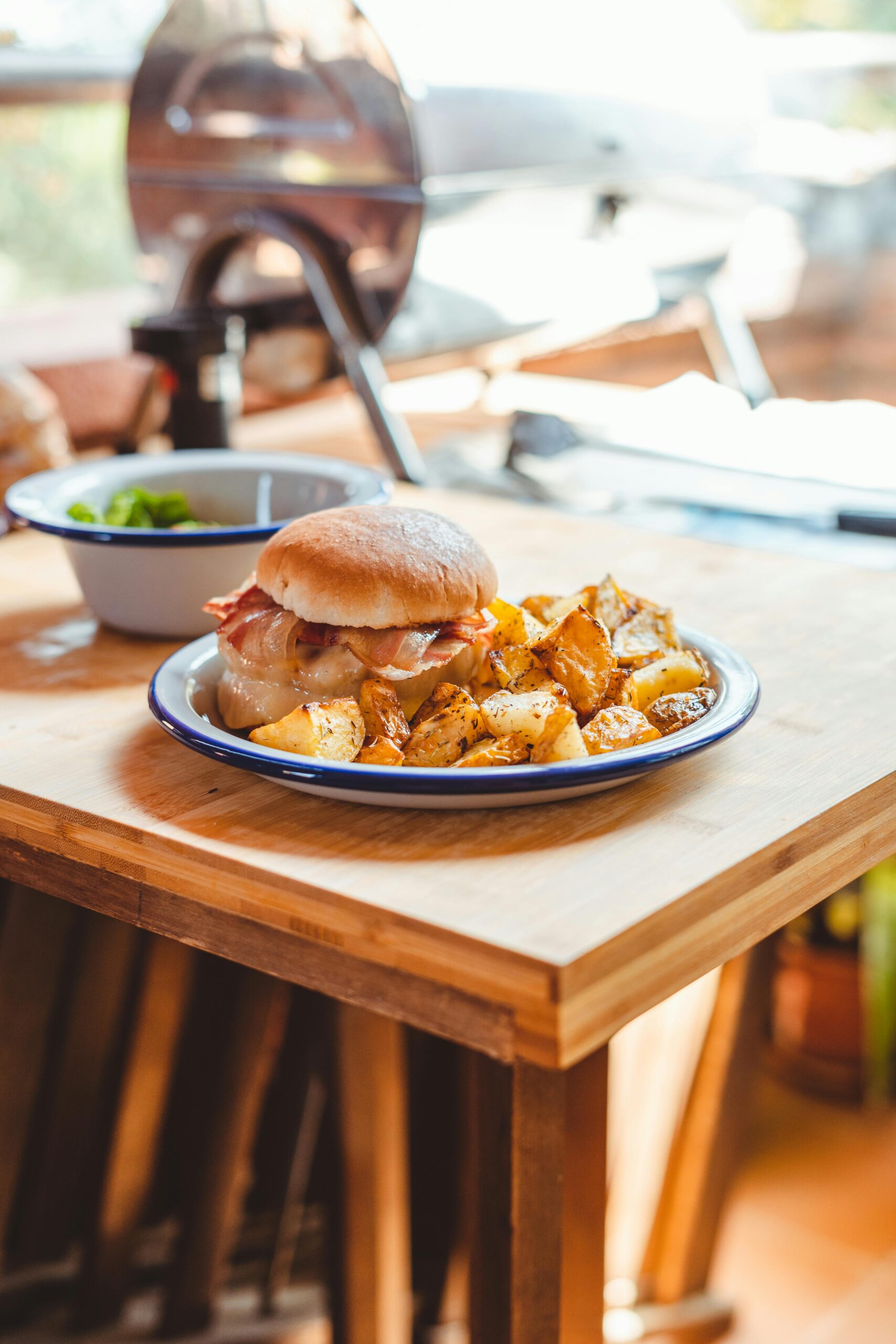Effective Ways to Achieve Kalorienüberschuss for Healthy Weight Gain in 2025
Achieving a Kalorienüberschuss (caloric surplus) is essential for those pursuing healthy weight gain, especially in the context of fitness and muscle building. In this guide, we will explore various strategies to effectively increase caloric intake while ensuring nutritional balance. Gaining weight can be a complex process influenced by factors such as Kalorienbedarf (caloric needs), Essverhalten (eating habits), and Stoffwechsel (metabolism). This article will provide practical approaches to navigate the journey towards your Gesundheitsziele (health goals) in 2025.
We will cover critical areas such as proper Ernährung (nutrition), Fitness routines, and effective Mahlzeitenplanung (meal planning). Discover how to increase your Proteinaufnahme (protein intake), utilize Hochkalorische Lebensmittel (high-calorie foods), integrate Nahrungsergänzung (supplements), and plan Snacks that fuel an energy surplus. Through informed dietary choices and lifestyle modifications, you can create an effective framework for weight gain.
In this article, we will provide actionable tips, backed by the latest research and expert recommendations, to help you achieve a healthy caloric surplus. Let’s embark on this journey towards effective weight gain!

How to Calculate Your Kalorienbedarf for Weight Gain
Before you embark on your weight gain journey, understanding your Kalorienbedarf is crucial. This is the number of calories your body requires to maintain its current weight, factoring in your level of activity. Once you have this baseline, you can effectively plan for a caloric surplus.
Step-by-Step Process to Calculate Kalorienbedarf
To calculate your caloric needs, you’ll primarily consider your basal metabolic rate (BMR) and your physical activity level (PAL). BMR represents the number of calories your body needs to function at rest, while PAL accounts for the calories burned through physical activities. Here’s how you can determine your needs:
- Calculate your BMR using the Mifflin-St Jeor equation:
- For men: BMR = 10 x weight(kg) + 6.25 x height(cm) – 5 x age(y) + 5
- For women: BMR = 10 x weight(kg) + 6.25 x height(cm) – 5 x age(y) – 161
- Multiply your BMR by your activity factor (e.g., sedentary = 1.2, lightly active = 1.375, moderately active = 1.55, very active = 1.725).
- Add 250-500 calories to your total to create a caloric surplus for weight gain.
By employing this calculation, you can accurately target your caloric surplus, ensuring that your increases contribute positively to your weight goals.
Experimenting with Energy Intake
It’s essential to remember that individual Kalorienbedarf fluctuates. Therefore, tracking your weight changes and adjusting caloric intake weekly can optimize your weight gain strategy. Use a Kalorienzähler (calorie counter) or a Fitness-Tracker to monitor your intake and progress.
Be mindful of emotional and psychological aspects impacting your eating behaviors. Stress and anxiety can influence cravings and the types of food consumed, potentially leading to unhealthy weight gain.
Essential Foods for Creating a Kalorienüberschuss
To achieve a successful Kalorienüberschuss, including nutrient-dense foods in your diet is critical. Choosing the right combination of Makronährstoffe (macronutrients) will not only support weight gain but also muscle development and overall health. Here are the key components:
High-Calorie Foods to Include
Incorporate high-calorie foods that are packed with nutrients rather than empty calories. Some examples include:
- Nüsse und Samen (nuts and seeds): These are rich in healthy fats and protein, providing significant calorie density.
- Avocados: Full of healthy monounsaturated fats, they can be added to various dishes for enhanced calories.
- Vollfette Milchprodukte (full-fat dairy products): Milk, cheese, and yogurt are great sources of calories and protein.
- Öle und Fette: Olive oil, coconut oil, and nut butter contain high calories and healthy fats that can easily be added to meals.
Integrating these foods into your meals and snacks can drive your caloric intake higher effectively.
Balancing Macronutrients for Optimal Results
While increasing calories, ensure a balanced intake of proteins, carbohydrates, and fats. Each macronutrient plays a vital role in muscle building and overall health:
- Proteinübung: Vital for muscle growth. Consider including sources such as chicken, fish, legumes, and protein shakes.
- Kohlenhydrate: They provide energy for workouts. Focus on complex carbohydrates like whole grains and starchy vegetables.
- Fette: Healthy fats are crucial for hormonal balance and nutrient absorption.
Using a combination of these macronutrients can ensure that your weight gain approach is effective and promotes muscle building.
Incorporating Effective Snacks into Your Diet
Snacking is a powerful yet often overlooked strategy for achieving a Kalorienüberschuss. Integrating wholesome snacks can help you reach your caloric goals without feeling overly full at mealtimes.
Top Snacks for Healthy Weight Gain
Choose high-calorie snacks that deliver nutrients. Consider the following options:
- Energieriegel: Look for those enriched with nuts and oats, offering a good balance of calories and proteins.
- Protein-Shakes: Quick and easy to make, these can be fortified with fruits, nut butter, or protein powder.
- Trockenfrüchte (dried fruits): They’re nutrient-dense and can significantly boost caloric content with smaller volume consumption.
Make sure to prepare your snacks in advance to avoid reaching for unhealthy options when hunger strikes.
Utilizing Meal Prepping for Success
Meal prepping can ensure that you have nutritious, high-calorie meals readily available. Plan and prepare your meals in advance to help save time and maintain control over your caloric intake. During the planning phase, consider the following:
- Choose recipes that align with your caloric needs.
- Batch cook meals that can be frozen for later use.
- Use a food scale to help with portion control, ensuring you hit your caloric goals.

The Role of Supplements in Your Weight Gain Journey
Supplements can play a role in achieving a Kalorienüberschuss, especially if you struggle to meet your caloric goals through food alone. However, it’s essential to use them wisely.
Understanding the Importance of Gainers and Superfoods
Gainer supplements are designed specifically to provide a higher calorie count per serving, making it easier to consume more calories without feeling overly full. Pairing these with Superfoods can enhance nutrient density:
- Grünes Gemüse: These provide vitamins and minerals without contributing excessive calories.
- Superfoods wie Chia-Samen (chia seeds) or Spirulina: These can boost the nutritional value of your meals and snacks.
- Be aware of the Zuckergehalt in supplements; opt for those with lower sugar to maintain health goals while gaining weight.
Integrating these tools can maximize your weight gain efficacy while preserving overall health.
Monitoring Progress and Adjusting Strategies
Regularly reviewing your progress is vital to ensure you are on the right path to achieving your goals. Depending on your outcomes, strategies may need adjusting as you advance in your weight gain journey.
Key Performance Indicators for Weight Gain Success
To track your progress effectively, consider these metrics:
- Weight changes: Aim for gradual increases of about 0.5 to 1 kg per week.
- Body composition assessments: Monitor muscle gain vs. body fat increase.
- Energy levels and workout performance: Ensure you feel energized during workouts, aspiring for improved performance over time.
If progress stalls, reassess your Kalorienverbrauch (caloric expenditure) and adjust your diet or physical activity levels accordingly.
Conclusion
Achieving a healthy Kalorienüberschuss in 2025 involves thoughtful planning, strategic eating, and being mindful of your overall health. By implementing the strategies outlined in this article, you’ll empower yourself to effectively navigate your weight gain journey. Remember, patience is key, and progress should be gradual. Incorporate a variety of nutrient-dense foods, explore quality supplements, and ensure you track your journey diligently. Ultimately, your lifestyle changes will lead you to the weight gain success you desire!
For further insight into nutrition and fitness, explore these resources: Nutrition Tips and Trends and Expert Insights on Fitness.
